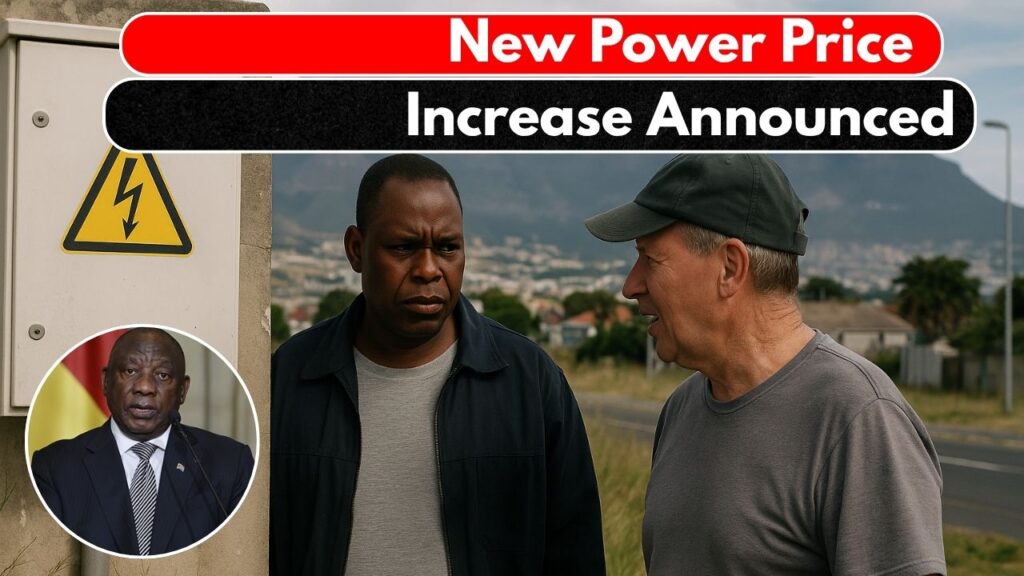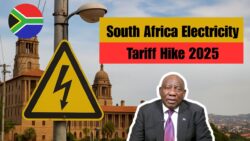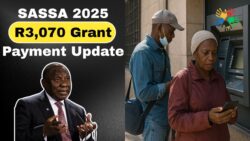South Africans are preparing for another electricity tariff hike in November 2025 after the National Energy Regulator of South Africa (NERSA) officially announced a new price increase. This adjustment comes amid growing concerns over rising living costs and energy affordability. The increase will impact households, small businesses, and industries alike, forcing many to reconsider their monthly energy budgets. As Eskom continues its efforts to stabilize the power grid and recover operational costs, this electricity price hike marks another key moment in South Africa’s ongoing energy reform process.

South Africa Electricity Tariff Increase Details
The latest NERSA-approved hike will see electricity costs rise across all provinces, with rates varying based on usage categories. For domestic consumers, the average tariff increase is expected to range between 12% and 15%, depending on their municipality. Industrial users will also face higher rates as Eskom seeks to recover operational expenses and fund essential infrastructure upgrades. This decision is part of NERSA’s broader plan to ensure a sustainable power supply for the country, while balancing financial stability and service reliability. The changes will take effect from the first week of November 2025.
Impact on Households and Businesses
The new electricity price adjustment will directly affect monthly electricity bills for millions of households across South Africa. Families are advised to practice energy-saving measures like switching to LED lights or using prepaid meters to manage expenses. For small businesses, particularly those in manufacturing and retail, the operational cost burden may increase significantly. Experts suggest that consumers review their current usage patterns and explore alternative power solutions such as solar installations to offset the financial strain caused by this tariff increase.
NERSA’s Role and Future Plans
As the regulator, NERSA plays a crucial role in ensuring that electricity pricing remains fair while supporting Eskom’s operational sustainability. The recent hike aligns with NERSA’s roadmap to reduce energy shortages and enhance national grid reliability. Looking forward, the regulator plans to introduce a tiered pricing model that promotes responsible consumption and rewards efficient users. Additionally, NERSA aims to support renewable energy investments to gradually lessen the country’s dependency on fossil fuels, improving both affordability and environmental impact.
Summary and Analysis
The November 2025 tariff adjustment highlights the delicate balance between economic necessity and consumer impact. While higher rates are a burden, they are essential for long-term energy stability and infrastructure development. South Africans can mitigate rising costs by adopting smart energy practices and exploring sustainable solutions like solar or battery storage. The ongoing collaboration between NERSA, Eskom, and the public will be critical to ensuring power reliability and achieving a more efficient energy sector in the coming years.
| Category | Previous Rate (R/kWh) | New Rate (R/kWh) | Increase (%) |
|---|---|---|---|
| Residential (Urban) | 2.10 | 2.38 | 13.3% |
| Residential (Rural) | 1.85 | 2.08 | 12.4% |
| Commercial | 2.75 | 3.10 | 12.7% |
| Industrial | 1.95 | 2.25 | 15.4% |
| Prepaid Users | 2.00 | 2.26 | 13.0% |
Frequently Asked Questions (FAQs)
1. When will the new electricity rates start?
The new rates will apply from November 1, 2025.
2. How much is the average tariff increase?
The average electricity tariff increase is around 13% nationwide.
3. Who announced the new price adjustment?
The National Energy Regulator of South Africa (NERSA) made the announcement.
4. How can consumers reduce their electricity bills?
Consumers can save by using energy-efficient appliances and reducing daily power usage.






